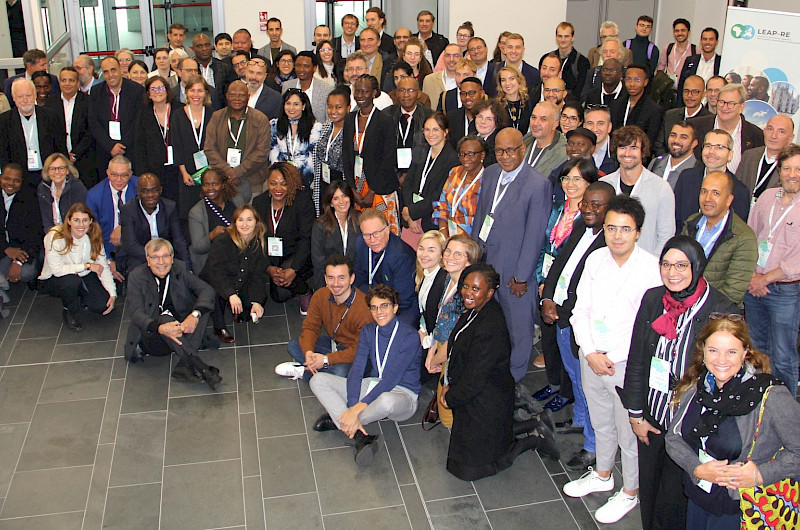
DocShop 2023. How to write a strong research proposal?

In connection with the annual Development Days Conference, the DocShop 2023: “How to write a good research proposal” took place in a reflective and multi-disciplinary atmosphere. In case you could not participate, no worries, here you have the 5 takeaway aspects you should consider when applying for funding!
Over the years, UniPID has had the pleasure to organize the DocShop in the frame of the Development Days Conference. For this occasion, the organizers wanted to address a crucial but sometimes frustrating part of the research journey. Both speakers and participants had the opportunity to discuss the key elements of a strong research proposal. In a hybrid format, around 40 doctoral researchers attended our invitation, and we were more than glad to host such an enriching session.
We were honored to have Swati Parashar (Gothenburg University) and Tor A. Benjaminsen (Norwegian University of Life Sciences) sharing their thoughts about research proposals and the discussion was facilitated by Anja Nygren (University of Helsinki). Here you have the 5 key aspects that will increase your chances of getting funding.
-
Take the time to reflect and familiarize yourself.
Before starting to write your proposal, it might make sense to take a cup of coffee, go for a walk in the forest, or follow the Finnish tradition and go to the sauna to ask yourself: Why is my topic interesting? Why is it important to study? What will my contribution(s) be? What makes my work different? What is the money applied for? These questions can guide your self-reflection while building the core idea of your research. This process should not be underestimated.
Additionally, familiarize yourself with the topic and study field. Take the time to review what has been done and how your topic has been addressed. Be aware of the recent trends of your research topic. The state of art is an important stage since you will identify the current gaps. But very important: avoid using sentences such as: “this has not been studied” or “this is the gap in the study field” in your proposal. We all know that it is an exaggeration, right?
-
Correct use of language.
Communication is the key when formulating your proposal. Hence, strategic use of language will help you to keep the reader’s attention in your paper. Bear in mind that evaluators are not necessarily experts in your field, so make sure to express the complexity of your topic through clear and concise ideas that non-specialists also understand. Ask someone not familiar with your topic to read your proposal. Is it clear to this person? If not, take a look at the concepts or words used again. Remember to avoid discipline-specific jargon as well.
Proofreading helps! Ask your fellows and supervisor(s) to read your text and make comments on the content but also on the use of language. Take care of the word limit and choose catchy sentences to attract the attention of the reader. Finally, and essential for your writing, pay special attention to the first page of your proposal. Consider that it will be the first approach of the evaluator with your work. Do not lose the reader!
-
YOU are an important part of the research.
Theories, research objectives, and methods are important parts of your proposal, but so are you! Write about your background and experience and be confident. You are already familiar with your topic; you are an expert. Impress the evaluator by explaining why it is you who should be writing on this topic. The evaluation committee is looking for someone with previous experience and prior approaches to the study field. You don’t have to be modest while it is of course very important to stay honest.
-
Be critical and reflective.
Outcomes as part of your dissertation are important, hence, explain what you are achieving, and be realistic. However, bear in mind as well that evaluators are not looking for a list of policies or recommendations at the end of your project. Instead, they are rather expecting critical research that can still include societal impact and policy relevance.
Take also this opportunity to demonstrate how research ethics is an essential part of the whole process. Ethical considerations are becoming more and more relevant, and they can determine the future of your project. Think about your privileged –or unprivileged - positionality and show how this self-reflective process has determined the choice of methods, theories, and ethics in the entire project design.
-
You are not alone, foster your networks!
During your research journey, it is important to constantly discuss with your fellows and supervisor(s) about the process. Organize peer-reading groups in your faculty or department, ask them to read your proposals, and be open to listening to their suggestions, comments, or questions. “Outsiders” might contribute to your dissertation as well, especially by identifying missed key concepts when they seem obvious to you. Take the initiative to foster collaborative work within your networks! For example, UniPID DocNet and DocShops can be convenient opportunities to build networks.
Finally, an important reminder: Do not lose hope! If you do not succeed on the first try, keep improving your proposal. Avoid changing the topic, just make your proposal look better for the next application. Remember that there is always someone getting the funding.
Do not forget to join DocNet here https://www.unipid.fi/infobank/docnet/
Photo credits: Nick Morrison, 2017 on UnSplash.
Latest posts


UniPID Virtual Studies Calls for Course Proposals 2025
October 2, 2024